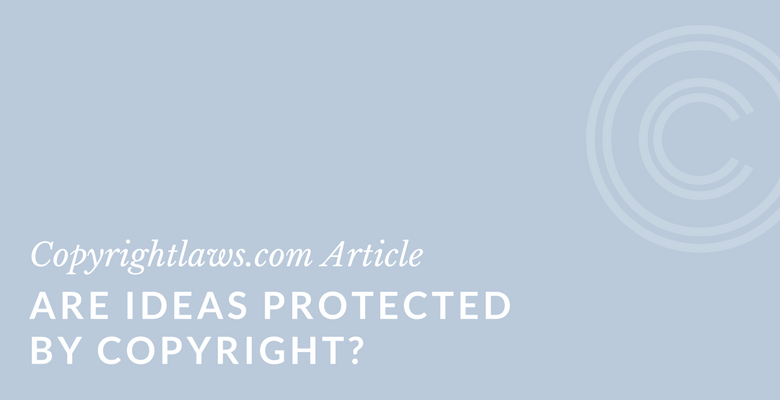
Are ideas protected by copyright law? It's a long-standing copyright law principle that they are not. What copyright law protects is the expression of ideas. The underlying reason for this is that ideas are part of the public domain and therefore no one can have a monopoly in an idea. This basic copyright principle applies no matter how novel or great an idea may be.
Section 102 of the U.S. Copyright Act states the following:
In no case does copyright protection for an original work of authorship extend to any idea, procedure, process, system, method of operation, concept, principle, or discovery, regardless of the form in which it is described, explained, illustrated, or embodied in such work.
An 1879 U.S. court case, Baker v. Seldon, clearly states:
The foundation of federal copyright law is that open expressions of ideas, not the ideas themselves give rise to protected interests.
The leading copyright convention, the Berne Convention, does not specifically address the term “idea” within the convention, and merely describes works that can be protected as expressions.
Are Ideas Protected by Copyright? No!
Since copyright law doesn't protect an idea, anyone can follow an idea set out in a book or an instructional video, or create a work based on the same idea, without infringing each another’s copyright.
Further, there can be copyright in two works expressing the same idea since it's the original expression of the idea that's protected by copyright. For example, two people may independently make sketches of the same mountain, each sketch being protected by copyright and neither of them violating the copyright in the other one.
In the case of an idea for a new business, the same principles apply. The idea itself would not be protected; however, any “fixed” works such as a business plan, marketing documents, and website articles or posts could be protected by copyright. If a competitor copied your fixed works, you may have a copyright infringement claim. However, you would not have the right to prevent someone else from using your idea for a similar kind of business.
Along with ideas, copyright law doesn't protect titles, names, short slogans, history, facts, news, and similar items.
Contracts May "Protect" Ideas
The closest thing to protecting an idea would be through an agreement or contract that treats that idea as confidential information or as a trade secret. That's why enterprises may, in certain circumstances, ask their employees and consultants to sign a confidentiality agreement upon commencement of work with them.
For such an agreement to be valid, the information being protected must be:
- Of a confidential nature (trivial information or public information will not be protected)
- Defined in some manner
- Communicated in such a way, whether implicit or explicit, to instill an obligation of confidence
It's always best for a confidential information arrangement to be set out in a written agreement so that both parties adhering to it understand its terms and conditions.
The agreement should describe in sufficient detail the type of information, the length of protection (if it's limited), any geographical limitations on divulging the information, and any allowable uses of the information. The more specific and limited the terms and conditions in the agreement, the more likely a court of law would uphold such an agreement.
Need to learn more about U.S. and global copyright and permissions issues
from a practical perspective? See our Copyright Leadership Certificate course.
See all our copyright and licensing online courses.



